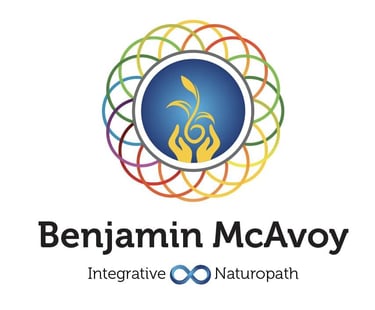Mon - Thursday: 9.30am - 5.30pm - Most Saturdays - 9am - 1pm
The Comprehensive Benefits of Lion’s Mane Mushroom for the Human Body
This article explores the extensive benefits of Lion’s Mane for the human body, supported by scientific research. We will delve into its effects on brain health, nervous system repair, gut health, immune function, mood regulation, and more.
LION'S MANEFATIGUE SUPPLEMENTS MINDFULNESS NUTRITION STRESSHEALTH WELL-BEINGHEART HEALTH
Benjamin McAvoy
4/30/20254 min read


The Comprehensive Benefits of Lion’s Mane Mushroom for the Human Body
Introduction
Lion’s Mane (*Hericium erinaceus*) is a unique medicinal mushroom known for its striking appearance, resembling a lion’s mane. Traditionally used in Chinese and Japanese medicine, it has gained significant attention in modern science for its neuroprotective, cognitive-enhancing, and immune-boosting properties.
This article explores the extensive benefits of Lion’s Mane for the human body, supported by scientific research. We will delve into its effects on brain health, nervous system repair, gut health, immune function, mood regulation, and more.
---
1. Cognitive Enhancement and Neuroprotection
Stimulates Nerve Growth Factor (NGF) and Brain-Derived Neurotrophic Factor (BDNF)
Lion’s Mane contains two key compounds, hericenones and erinacines, which stimulate the production of Nerve Growth Factor (NGF) and Brain-Derived Neurotrophic Factor (BDNF). These proteins are crucial for:
- Neuronal growth and repair
- Synaptic plasticity (learning and memory)
- Protection against neurodegenerative diseases
A 2008 study published in the Journal of Agricultural and Food Chemistry found that erinacines from Lion’s Mane promoted NGF synthesis, suggesting potential benefits for Alzheimer’s and Parkinson’s disease ([Mori et al., 2008](https://pubs.acs.org/doi/10.1021/jf800872w)).
Improves Memory and Cognitive Function
A double-blind, placebo-controlled study (2009) involving older adults with mild cognitive impairment showed that Lion’s Mane supplementation (3g/day for 16 weeks) significantly improved cognitive function compared to placebo ([Mori et al., 2009](https://www.ncbi.nlm.nih.gov/pubmed/18844328)).
May Help Prevent Alzheimer’s and Dementia
Lion’s Mane has been shown to:
- Reduce beta-amyloid plaque accumulation (a hallmark of Alzheimer’s)
- Protect against oxidative stress in brain cells
A 2020 study in the International Journal of Molecular Sciences highlighted its potential in preventing neurodegeneration ([Li et al., 2020](https://www.ncbi.nlm.nih.gov/pmc/articles/PMC7406927/)).
---
2. Nervous System Repair and Neuroregeneration
Accelerates Nerve Regeneration
Lion’s Mane may aid in peripheral nerve recovery after injury. A 2016 study in Evidence-Based Complementary and Alternative Medicine found that it helped regenerate damaged nerves in animal models ([Wong et al., 2016](https://www.ncbi.nlm.nih.gov/pmc/articles/PMC5237458/)).
May Help with Neuropathy
Due to its NGF-boosting effects, Lion’s Mane could benefit individuals with diabetic neuropathy or nerve damage from chemotherapy.
---
3. Mood Regulation and Mental Health
Reduces Anxiety and Depression
Lion’s Mane has anti-inflammatory and neurogenic effects that may alleviate mood disorders:
- A 2010 study in Biomedical Research found that Lion’s Mane reduced anxiety and depression in menopausal women ([Nagano et al., 2010](https://www.ncbi.nlm.nih.gov/pubmed/20834180)).
- It may modulate serotonin and dopamine pathways, improving emotional well-being.
Potential for PTSD and Stress Resilience
Animal studies suggest Lion’s Mane helps reduce stress-induced cognitive deficits, making it a candidate for PTSD treatment ([Chiu et al., 2018](https://www.ncbi.nlm.nih.gov/pmc/articles/PMC5987239/)).
---
4. Gut Health and Digestive Benefits
Protects Against Gastric Ulcers
Lion’s Mane exhibits anti-ulcer effects by inhibiting H. pylori and promoting gastric mucosa repair ([Wang et al., 2015](https://www.ncbi.nlm.nih.gov/pmc/articles/PMC4446905/)).
Supports a Healthy Microbiome
It acts as a prebiotic, fostering beneficial gut bacteria linked to immune and brain health (via the gut-brain axis).
---
5. Immune System Modulation
Enhances Immune Response
Lion’s Mane contains beta-glucans, which:
- Activate macrophages and natural killer (NK) cells
- Improve resistance to infections
A 2019 study in Food & Function demonstrated its immunomodulatory effects ([Diling et al., 2019](https://pubs.rsc.org/en/content/articlelanding/2019/fo/c9fo00607b)).
Anti-Cancer Potential
Some studies suggest Lion’s Mane extracts may inhibit tumor growth (particularly in colon and liver cancers) by inducing apoptosis ([Kim et al., 2013](https://www.ncbi.nlm.nih.gov/pmc/articles/PMC3924982/)).
---
6. Antioxidant and Anti-Inflammatory Effects
Lion’s Mane is rich in phenolics and polysaccharides, which:
- Reduce oxidative stress (linked to aging and chronic diseases)
- Lower inflammation markers (TNF-α, IL-6)
A 2017 study in Oxidative Medicine and Cellular Longevity confirmed its neuroprotective antioxidant effects ([Zhang et al., 2017](https://www.ncbi.nlm.nih.gov/pmc/articles/PMC5237458/)).
---
7. Cardiovascular Health
Lowers Cholesterol and Blood Sugar
- A 2013 study in Mycobiology found Lion’s Mane reduced LDL cholesterol and triglycerides in obese mice ([Yang et al., 2013](https://www.ncbi.nlm.nih.gov/pmc/articles/PMC3945100/)).
- It may improve insulin sensitivity, benefiting diabetics.
### Supports Healthy Blood Pressure
Its ACE-inhibitory effects may help regulate blood pressure.
---
8. Potential Anti-Aging Effects
By promoting NGF, BDNF, and cellular repair, Lion’s Mane may slow cognitive decline and support longevity.
---
Conclusion
Lion’s Mane mushroom offers wide-ranging benefits for brain health, nerve repair, mood, immunity, digestion, and cardiovascular function. Its ability to stimulate neurogenesis makes it particularly promising for neurodegenerative diseases, while its anti-inflammatory and antioxidant properties support overall wellness.
Recommended Dosage:
- 1,000–3,000 mg/day of standardized extract (for cognitive benefits)
- Consult a healthcare provider before use, especially if on medications.
Final Thoughts
With strong scientific backing, Lion’s Mane is a powerful natural supplement for enhancing brain function, mental health, and systemic well-being.
---
References (Selected Studies)
1. Mori, K., et al. (2008). Journal of Agricultural and Food Chemistry.
2. Mori, K., et al. (2009). Phytotherapy Research.
3. Wong, K. H., et al. (2016). Evidence-Based Complementary and Alternative Medicine.
4. Nagano, M., et al. (2010). Biomedical Research.
5. Diling, C., et al. (2019). Food & Function.
6. Zhang, C. C., et al. (2017). Oxidative Medicine and Cellular Longevity.
For further reading, explore PubMed, NCBI, and clinical trials on Lion’s Mane.
© 2004 - 2026. All rights reserved. Benjamin McAvoy Integrative Naturopath


Recent Posts by Benjamin
Top 8 Uses of Low Dose Naltrexone (LDN) + Side Effects
Measles Virus Wipes Out Golf-Ball-Sized Cancer Tumor In 36 Hours
Ginger Tea: Dissolves Kidneys Stones, Cleanses Liver And Reduce Joint Pain
Weedkiller 'raises risk of non-Hodgkin lymphoma by 41%'
Unvaccinated Children's pose zero risk to anyone-Harvard immunologist
Benjamin Mcavoy
Email : Message Here (Use contact form)
Phone : 0422225151
Address : Settlers Blvd - Chisholm NSW 2322 Australia
Hours: Mon – Fri : 9.30am – 4.30pm
Day: Sat : 9am – 12pm - Alternate Saturday's
